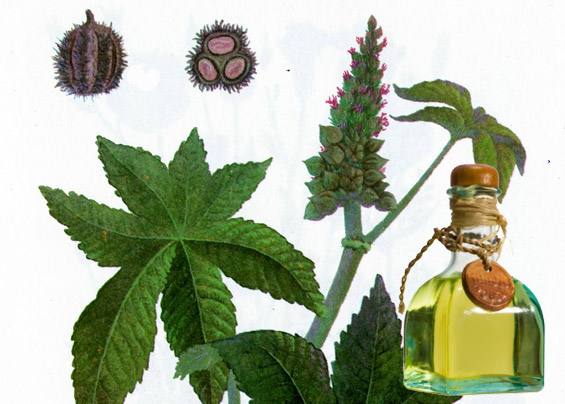Dr. Allan Sachs: "My first column on autoimmune disease appeared in the Poughkeepsie Journal and provided a basic overview of autoimmune diseases. Here is a summary of the major points from that article...":
- 1. Our immune systems are tasked with providing overall protection against an astounding array of germs, parasites and potentially harmful chemical as well as helping to safely dispose of our own metabolic waste products. But while they must be strong they must also be smart. Otherwise they could attack harmless substances such as food, harmless or beneficial microbes (our probiotics population) or even our own body tissue.
- 2. To meet this challenge, our immune systems are wildly complex and adaptable. However, with all of its resilience, it can become extremely sensitive, vulnerable and dysfunctional when overtaxed.
- 3. Such dysfunction often manifests as an autoimmune disease in which we target our own specific body organs or systems. accounts for a large percentage of the major chronic debilitating diseases including diabetes, arthritis, multiple sclerosis, obesity, thyroid malfunction, ulcerative colitis, heart disease and even some forms of mental illness.
- 4. When we injure ourselves or come in contact with an unwanted microbe, an inflammatory response by the immune system is appropriate and adaptive. However, when the immune system gets stuck in a chronic inflammatory mode, sooner or later our bodies come in for a form of “friendly fire” that winds up compromising the very tissue the immune system was meant to protect.
In this second installment, we’ll look at autoimmune disease from a holistic viewpoint. More people who already suffer from autoimmune disease are turning to natural healing modalities, since almost all anti- inflammatory drugs used to treat the various forms of autoimmune disease come with serious side-effects.
In studying autoimmune disease, two glaring facts stand out. The incidence of autoimmune disease is unusually high in the United States, while far less common in native cultures. Secondly, when members of such native cultures move to America or welcome processed foods from abroad, their risk of obesity, heart disease, diabetes, arthritis rise dramatically. This was chronicled as far back as 1938 by Dr. Weston Price in his groundbreaking book “Nutrition and Physical Degeneration: A Comparison of Primitive and Modern Diets and Their Effects.”
How does the holistic model account for this phenomenon? One of the major miracles our bodies perform on a daily basis is to turn dead food, whether it be Swiss chard, a piece of chicken or a hamburger, into living human flesh in a matter of minutes or hours. Few people take time to contemplate what a spectacular accomplishment that is. But what do our bodies do with the chemical contaminants such as the artificial colors, flavors, preservatives and pesticides that come imbedded in our food supply? Up to a point, our immune systems are able to help detoxify those useless or dangerous substances and rid our bodies of them. However, there comes a point when the elimination of toxins becomes backed up and take up permanent residence in our bodies.
It is easy to blame an aberrant immune system for any given autoimmune disease, but remember it is that system’s job to identify and attack substances foreign or dangerous to our bodies. Since those substances are so firmly imbedded in our tissues, there is no way theprocess can single them out without at the same time doing damage to healthy tissue. Adding to our toxic load from processed food is the myriad of pharmaceutical drugs Americans consume. It has been estimated that while America accounts for about 5 percent of the world’s population, we consume almost 50 percent of the antibiotics taken. Such drugs are not only potentially toxic, but by killing off some of the important “friendly bacteria” along with the targeted bad ones, they do great damage to the other life forms living in our bodies. Since our immune systems are completely dependent on this mix of beneficial bacteria as outlined in “Gut and Psychology Syndrome” by Dr. Natasha Campbell-McBride, any disruption to our bacterial balance is sure to create significant immune dysfunction.
Secondly, processed foods are often devoid of essential vitamins, minerals and antioxidants, which are necessary for the maintenance of afunctional immune system. In place of these vital nutrients, we find lots of added sugar and unhealthy fats. Regarding diabetes, it can no longer be doubted that the American diet high in sugar and processed carbohydrates is a major factor in a lifelong struggle with high blood sugar. Furthermore, the presence of high levels of glucose in the blood not only paralyzes certain aspects of the immune system, but also favors the colonization of unhealthy bacteria and fungi, which accounts for the inability of diabetics to ward off infections. But it’s not only diabetics who face this scenario. The struggle to maintain normal immune function and healthy blood sugar levels in the face of a diet replete with poor-quality food requires so much energy that sooner or later a breaking point may be reached, resulting in some form of autoimmune disease. Therefore anyone suffering from autoimmune disease should move aggressively toward a whole food natural diet.
The identification of food allergies and intolerances is the unappreciated stepchild of modern medicine. “One person’s meat is another person’s poison” is an adage that dates back to antiquity and sums up the need to understand that each person is different and what works for one might not work for another.
Bioengineering only exaggerates the problem. Recent discoveries regarding radically altered proteins in gluten that abounds in wheat, barley, rye, and spelt indicate that these grains might in part account for a radical rise in diabetes, obesity, arthritis and thyroid disease. And dairy products, often containing residues of antibiotics and bovine growth hormone can be equally problematic. It’s only logical that in as much as our bodies are made of the food we eat, if we’re allergic to some of those foods, we can more easily become allergic to ourselves.
It is well documented that long-term use of anti-inflammatory drugs to treat autoimmune disease poses many serious risks. Luckily, nature provides. Anti-inflammatory herbs and nutrients have proven invaluable, spanning back to the beginning of human history. In recent years, scientists have been able to gather information from all over the world, so the ancient wisdom regarding these herbs as well as many other natural substances has not only been preserved, but enhanced.
While a natural and balanced diet is the cornerstone of every health program, there are other measures that should be employed to prevent and manage autoimmune disease. For instance, as I indicated in a previous article, vitamin D is really a master hormone responsible for the activation of at least 2,500 of our genes. Conditions as widely divergent as breast cancer, diabetes, multiple sclerosis, inflammatory bowel disease and several forms of mental illness may be linked to low levels vitamin D. The argument for vitamin D is bolstered by the fact that several form of autoimmune disease are more prevalent in the Northeast than in the sun belt. Many other vital nutrients, such as omega 3 fish and flax oil are proving of great value in both treating and preventing autoimmune disease.
Regular exercise tailored to one’s individual needs and abilities is a true panacea. Our ability to clean our tissues depends on proper blood and lymph circulation. Heavy breathing removes waste products through the lungs, and while saunas can be therapeutic, nothing compares to sweating induced by exercise.
Finally, sustained emotional stress take a great toll on our adrenal function. The adrenal glands help the nervous and hormonal systems to coordinate with each other. Autoimmune disease can often be triggered or aggravated by acute or chronic stress. In this light, by proactively developing a holistic program that includes meditation, increased socialization, massage, acupuncture and regular exercise can help your immune system stay on track.
Source: poughkeepsiejournal.com







